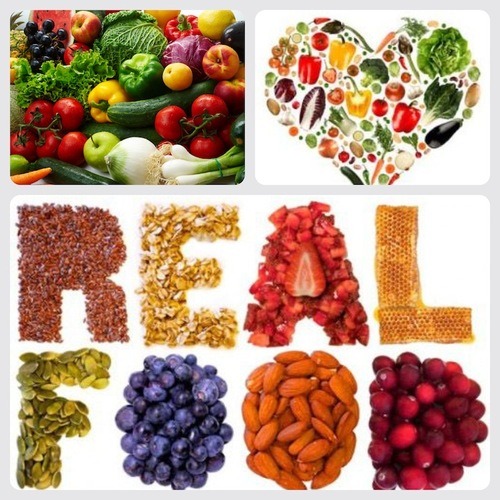I don't know about you but, I really struggled and still do with getting my three kids on board with clean eating. My oldest Son Gavin was never a good eater! I mean he ate NOTHING! It was a very tough thing for my husband and I to go through watching our child refuse to eat food. My pediatrician had told us when he was two that we should not worry at this point about "healthy" foods but, just make sure that he is eating. I think his approach was anything is better then nothing. So, now that he is older and quite a good eater, I must add, we have really been working with our kids to eat healthy and make good choices when it comes to food. This is definetly a work in progress but, continue to educate my children because I feel like it is very important and want them to feel as good as I do from consuming whole, real foods!!
These are some of the ideas and things we have been doing to incorporate our children into eating clean foods....
1. Serve vegetables as an appetizer. While you set out the rest of dinner, keep hungry kids occupied with veggies. (I love carrot sticks and fresh cut bell pepper.) When you serve veggies before dinner, they’re more likely to be eaten.2. Offer control. Picky eating is often about control, not taste. Offer two options (“Shall we have peas or broccoli trees with lunch?”) and give your child the power to choose one.
3. Remember tiny tummies. Do you often think that your toddlers aren’t eating enough? But when they describe all the child ate that day, it’s really plenty of food. Children’s tummies are quite small, about the size of their clenched fist. What looks like a reasonable snack to grown-up eyes might be an overwhelming portion for little ones.
 4. Never underestimate the power of a silly face or use animal shapes. At snack time, try arranging cucumber slice eyes with a ranch dip smile and carrot teeth, or peanut butter eyes and a celery mouth on an apple slice head. And what kid can resist this BEAUTIFUL butterfly!
4. Never underestimate the power of a silly face or use animal shapes. At snack time, try arranging cucumber slice eyes with a ranch dip smile and carrot teeth, or peanut butter eyes and a celery mouth on an apple slice head. And what kid can resist this BEAUTIFUL butterfly!5. Make it interactive. Who says you shouldn’t play with your food? Steamed artichokes with lemon butter for dipping, roasted asparagus with a little cup of grated parmesan, lettuce wraps for stuffing with seasoned chicken or beans and veg — kids love interacting with their food! For bonus points, give each component a cool name — “trees with snow” will add a dash of giggles to a dish of broccoli with parmesan.
6. Delegate sous chef duties. At the market, have everyone pick out one fruit or veggie they’d like to have that evening. Then, let them add their chosen food to the pizza, soup, or salsa. When children are involved in the cooking, they’re much more likely to try the result.
7. Be a veggie pragmatist. As a busy mom, I know it is not always possible to browse the market with your children. And to be honest with three kids grocery shopping can actually be quite enjoying when I get the oppurtunity to go by myself. When that happens, reach for frozen vegetables. The nutrient profile on vegetables that are flash frozen are just as good and frozen veggies are more forgiving of busy schedules and fickle toddler tastes.
8. Zucchini bread is not a vegetable. Quite a few recent books suggest ways to “sneak” fruit and veg into children’s meals. Boosting nutrition is all well and good, but it’s also important to teach children what things look and taste like in their natural state. Don’t just sneak a cheeky puree into the pizza sauce. Let them know it’s there, and let them see how it’s prepared.
9. Don’t give up. Studies show that children have to try a food 10-15 times to like it, and I’ve certainly found that to be true. Encourage children to play with a new food, touch it, smell it, and above all taste it, but keep things lighthearted. Remember your child isn’t just being contrary being suspicious of new food is an entirely reasonable instinct, especially for children.
10. The no-thank-you bite. If your child refuses outright to try new things, introduce a “no-thank-you bite” rule. With this rule, if a child doesn’t want to eat something, that’s fine so long as she takes a small bite and says “no thank you.” If she still doesn’t like it, chalk it up to one of those 10-15 necessary new food exposures and move on.
I hope you find these tips helpful! Remember it is a work in progress and your children will eventually start eating more real foods over time!
Alyssa
XXOO




No comments:
Post a Comment